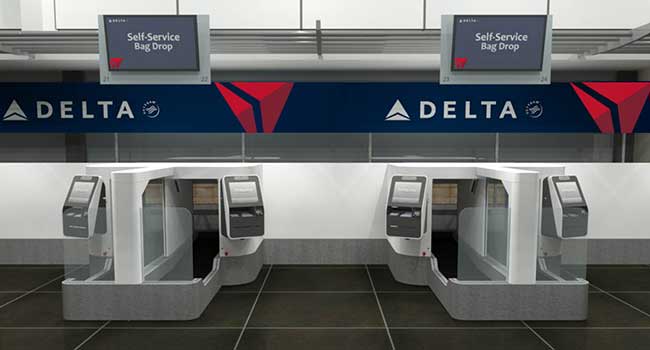
Delta Air Lines to Test Facial Recognition this Summer
Starting this summer in Minneapolis, Delta Air Lines will use facial recognition to speed up bag drops.
In an effort to speed up bag drops for priority customers, Delta Air Lines will be testing facial recognition technology at Minneapolist-St. Paul International Airport starting this summer.
Customers will be required to scan their passports at a new self-service kiosk, where a camera will use their face to confirm their identity. Delta will collect customer feedback during the process to gauge how it will expand the service to other airports in the future.
The announcement comes as airports look to beef up security in soft-target areas, consider a laptop ban on flights from overseas and as Customs and Border Protection begin registering visitors leaving the U.S. using facial recognition at airports like New York’s JFK Airport.
Delta insists that privacy will be protected and that its self-service bag drops will not collect anyone’s information or retain any images of their face. Privacy experts remain weary, however. They warn that government agencies (and now private airlines) run risks when using this kind of technology, especially if it is found that they are cross-checking facial images with law enforcement databases without permission.